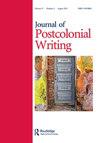折磨的能见度:极端主义,耻辱,和奥马尔·艾尔·凯里和纳迪亚·拉蒂夫的《本土》中的抵抗
IF 0.4
3区 文学
0 LITERATURE
引用次数: 0
摘要
摘要:本文探讨了2015年奥马尔·哈里和纳迪亚·拉蒂夫的戏剧《土生土长》被取消的相关情况。受国家青年剧院委托,它在原定开幕前几天意外地被取消了。这一举动可以归因于对本土特色的所谓“极端”观点的高度敏感,因为英国政府收紧了对不可接受言论的定义,并将监管责任交给了民间社会机构。然而,正如本文所述,本土人的待遇也可以从少数民族——尤其是穆斯林——戏剧的历史委托过程中理解,这些戏剧对某些话题和处理方式给予特权,导致边缘社区持续被污名化。从一开始,Homegrown就对这些限制保持警惕,并试图通过彻底拒绝以安全话语框架公约和9/11后剧院管理礼仪批准的方式进行辩论来应对这些限制。本文章由计算机程序翻译,如有差异,请以英文原文为准。
Tormented visibility: Extremism, stigma, and staging resistance in Omar El-Khairy and Nadia Latif’s Homegrown
ABSTRACT This article examines the circumstances surrounding the cancellation of Omar El-Khairy and Nadia Latif’s play Homegrown in 2015. Commissioned by the National Youth Theatre, it was unexpectedly cancelled days before it was due to open. This move can be attributed to heightened sensitivity towards so-called “extreme” opinions of the kind Homegrown features, as the British government tightened definitions of unacceptable speech and placed the onus on civil society bodies to police it. Yet, as this article argues, Homegrown’s treatment can also be understood in terms of the historical commissioning processes for minority – especially Muslim – theatre, which privilege certain topics and modes of address that result in marginal communities’ continued stigmatization. From the outset, Homegrown was alert to these constraints and sought to counter them through a radical refusal to conduct its debates in the manner approved by the framing conventions of security discourse and the governing etiquette of post-9/11 theatre.
求助全文
通过发布文献求助,成功后即可免费获取论文全文。
去求助
来源期刊

Journal of Postcolonial Writing
LITERATURE-
CiteScore
0.80
自引率
0.00%
发文量
73
期刊介绍:
The Journal of Postcolonial Writing is an academic journal devoted to the study of literary and cultural texts produced in various postcolonial locations around the world. It explores the interface between postcolonial writing, postcolonial and related critical theories, and the economic, political and cultural forces that shape contemporary global developments. In addition to criticism focused on literary fiction, drama and poetry, we publish theoretically-informed articles on a variety of genres and media, including film, performance and other cultural practices, which address issues of relevance to postcolonial studies. In particular we seek to promote diasporic voices, as well as creative and critical texts from various national or global margins.
 求助内容:
求助内容: 应助结果提醒方式:
应助结果提醒方式:


